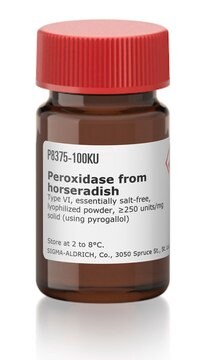P8920
Poly-L-lysine solution
0.1 % (w/v) in H2O
Synonym(s):
2-(4-Cyanoanilino)-4,6-dichloropyrimidine, 4-[(4,6-Dichloro-2-pyrimidinyl)amino]benzonitrile
About This Item
Recommended Products
biological source
synthetic
shelf life
Expiry date on the label.
mol wt
150,000-300,000
concentration
0.1 % (w/v) in H2O
color
colorless
application(s)
hematology
histology
storage temp.
room temp
SMILES string
N([C@@H](CCCCN)C(=O)N[C@@H](CCCCN)C(=O)O)C(=O)[C@@H](N)CCCCN
InChI
1S/C18H38N6O4/c19-10-4-1-7-13(22)16(25)23-14(8-2-5-11-20)17(26)24-15(18(27)28)9-3-6-12-21/h13-15H,1-12,19-22H2,(H,23,25)(H,24,26)(H,27,28)/t13-,14-,15-/m0/s1
InChI key
WBSCNDJQPKSPII-KKUMJFAQSA-N
Looking for similar products? Visit Product Comparison Guide
Application
Biochem/physiol Actions
Components
Preparation Note
replaced by
Signal Word
Warning
Hazard Statements
Precautionary Statements
Hazard Classifications
Aquatic Chronic 2 - Eye Irrit. 2 - Skin Irrit. 2 - Skin Sens. 1
Storage Class Code
12 - Non Combustible Liquids
WGK
WGK 3
Flash Point(F)
Not applicable
Flash Point(C)
Not applicable
Choose from one of the most recent versions:
Already Own This Product?
Find documentation for the products that you have recently purchased in the Document Library.
Articles
The Human Protein Atlas Program has carefully selected three different human cell lines, A-431 epidermoid carcinoma, U-251 MG glioblastoma and U-205 osteosarcoma, for organelle mapping of the proteome. As Prestige Antibodies are studied by immunofluorescence (IF) staining, three well-characterized organelle markers for nuclei, microtubules and endoplasmic reticulum are used correspondingly as specific probes. The high-resolution confocal images are annotated based on sub-cellular localization. In addition, staining intensity and characteristics are also part of an overall assessment as well as comparison to literature (if available).
Derivation and characterization of functional human neural stem cell derived oligodendrocyte progenitor cells (OPCs) that efficiently myelinate primary neurons in culture.
Related Content
Learn about the clinical study of blood, blood-forming organs, and blood diseases including the treatment, prevention, and stains and dyes used in hematology testing.
Our team of scientists has experience in all areas of research including Life Science, Material Science, Chemical Synthesis, Chromatography, Analytical and many others.
Contact Technical Service








